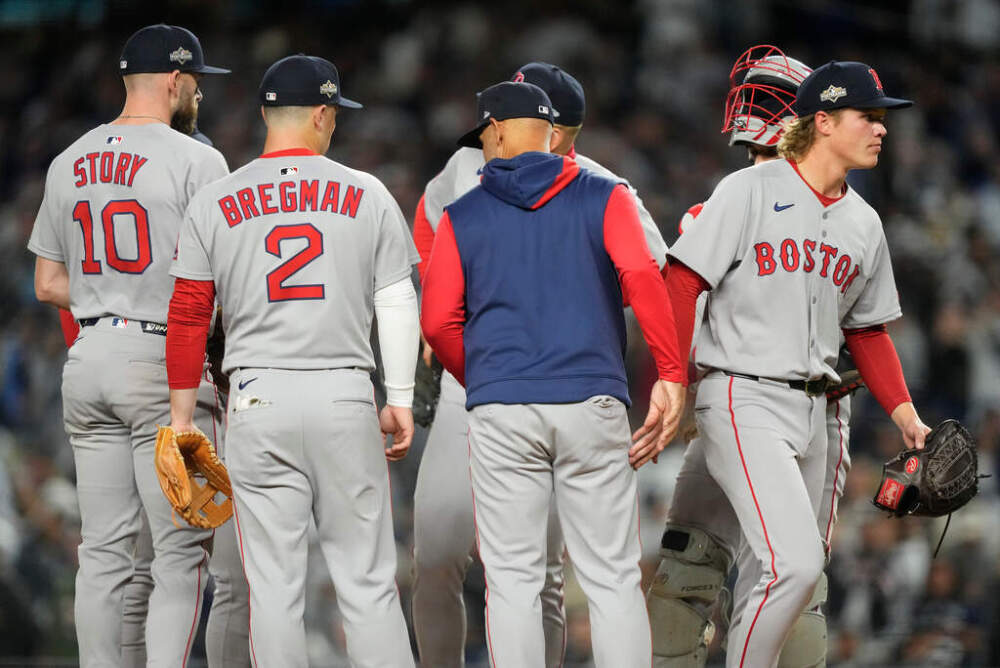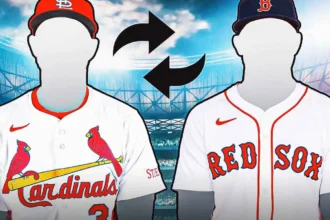The Boston Red Sox’s decision to sign Aroldis Chapman this past offseason turned out to be one of their most surprising and successful moves in recent memory. For years, Chapman had been one of the most polarizing figures in Major League Baseball — a flamethrowing closer known for his electric fastball, intimidating mound presence, and a complicated legacy with the New York Yankees. When Boston brought him aboard, many wondered whether the 36-year-old reliever still had anything left in the tank. What they got instead was a rejuvenated, dominant version of Chapman — one who not only silenced critics but also made it abundantly clear that his Yankees days were permanently behind him.
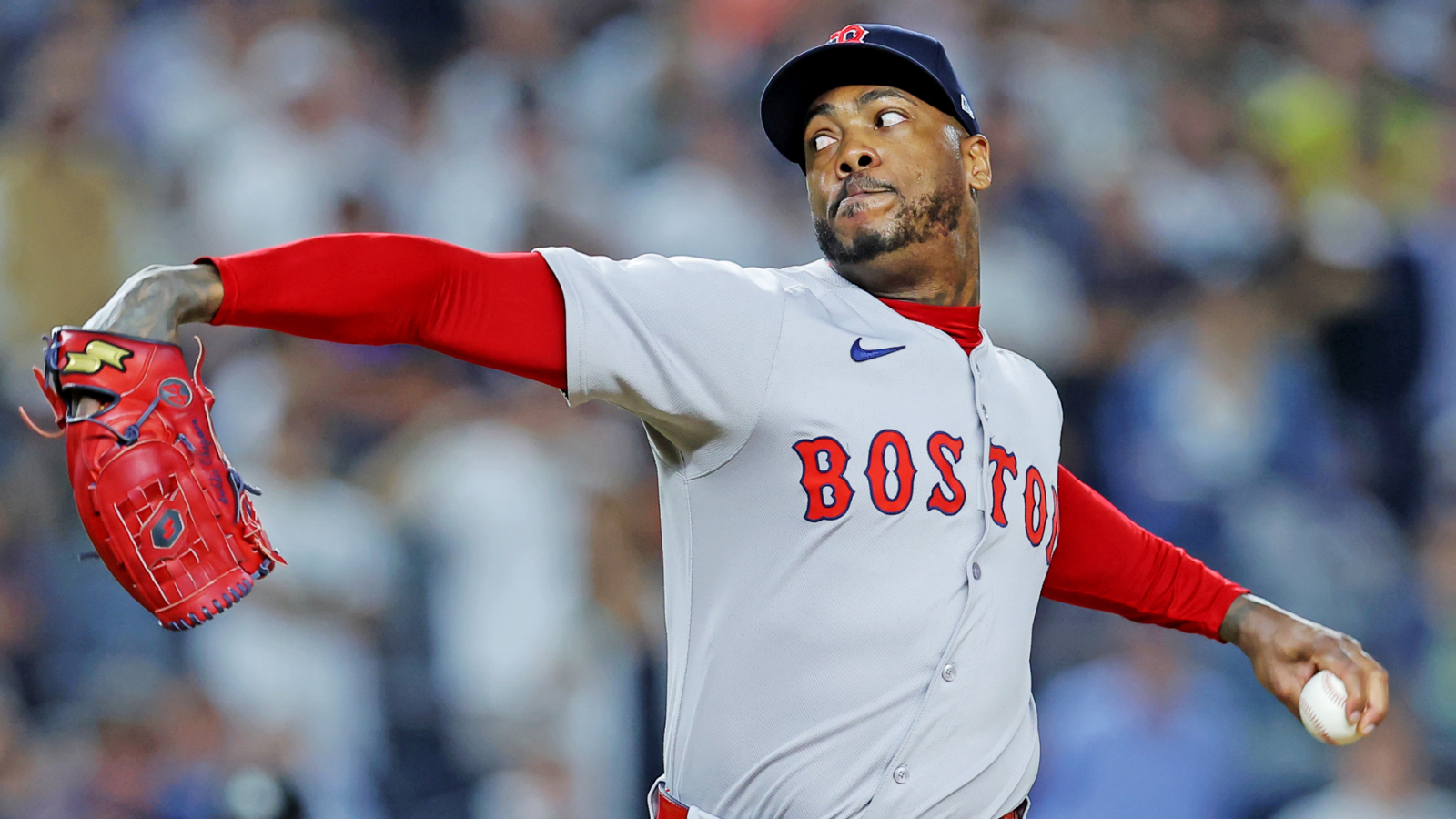
From the moment Chapman donned the Red Sox uniform, the energy around him seemed different. He wasn’t just pitching to prove he could still perform; he was pitching with a chip on his shoulder. The rivalry between the Red Sox and Yankees is one of the fiercest in all of sports, and for Chapman, it became personal. In a candid interview earlier this season, the veteran closer made headlines when asked whether he would ever consider returning to the Bronx. His response was emphatic — and instantly endeared him to Red Sox Nation.
“Absolutely not,” Chapman declared. “No way. Not even dead. If I were told that I was being traded to New York, I’d pack my things and go home. I’ll retire right on the spot if that happens. I dealt with a lot of disrespect there.”
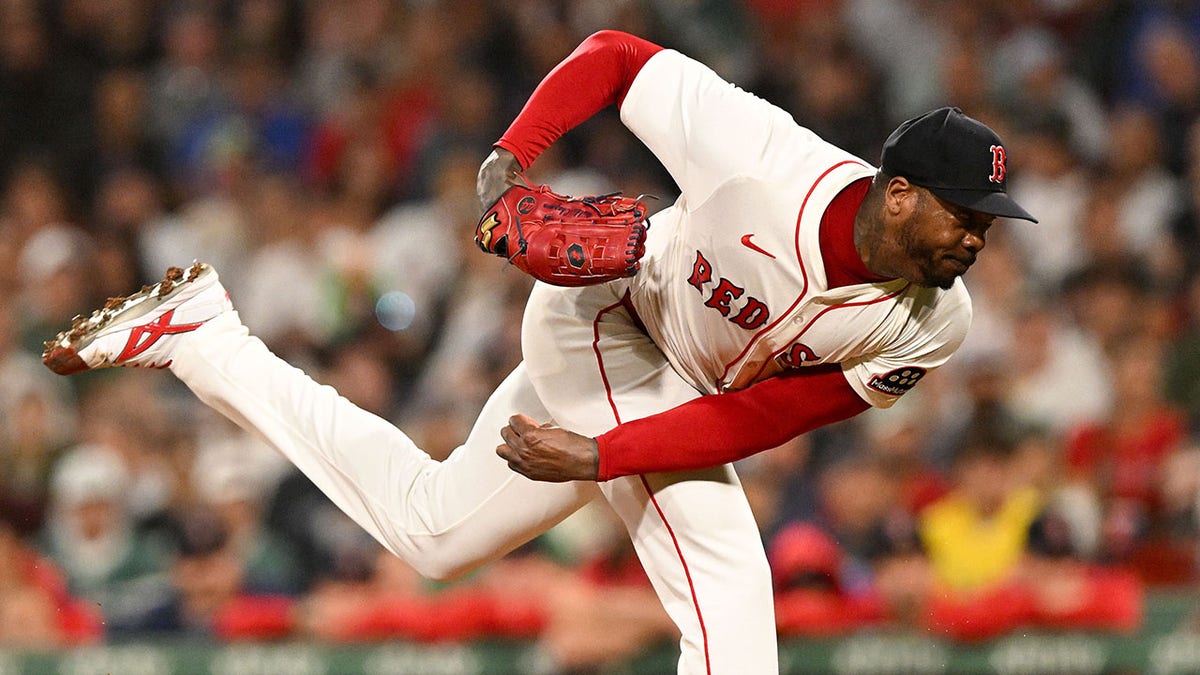
It was a stunning admission, but one that spoke volumes about how deeply his time in New York had affected him. Despite years of success as one of baseball’s premier closers, Chapman never quite felt appreciated by the Yankees fanbase. His tenure with the team was filled with moments of triumph, but also tension.
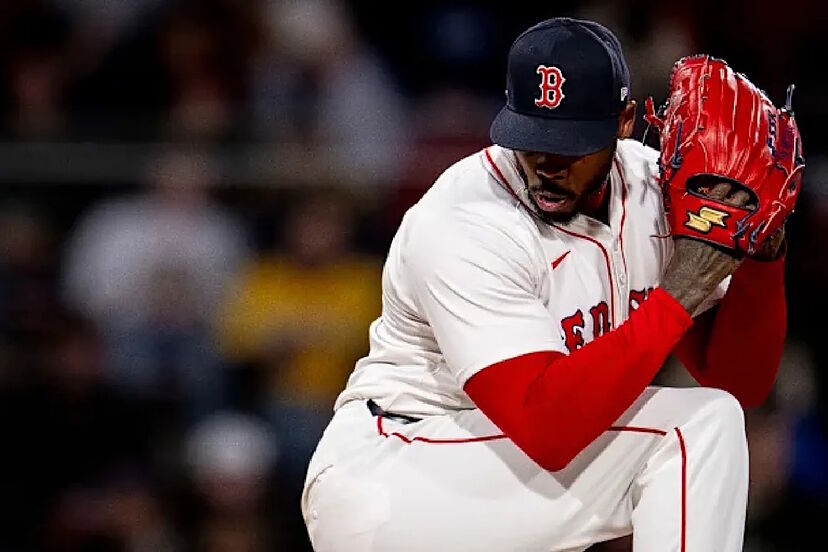
Over the course of seven seasons with the Yankees, Chapman built an impressive résumé: a 2.94 ERA, 453 strikeouts, a 1.148 WHIP, and 153 saves across 315 appearances. By the numbers, he was one of the most effective relievers in franchise history. Yet despite those contributions, the relationship between Chapman and Yankee fans was rocky. Every blown save seemed to overshadow his accomplishments. Each postseason heartbreak brought renewed scrutiny. When the Yankees fell short in October, Chapman often became the scapegoat — fair or not.
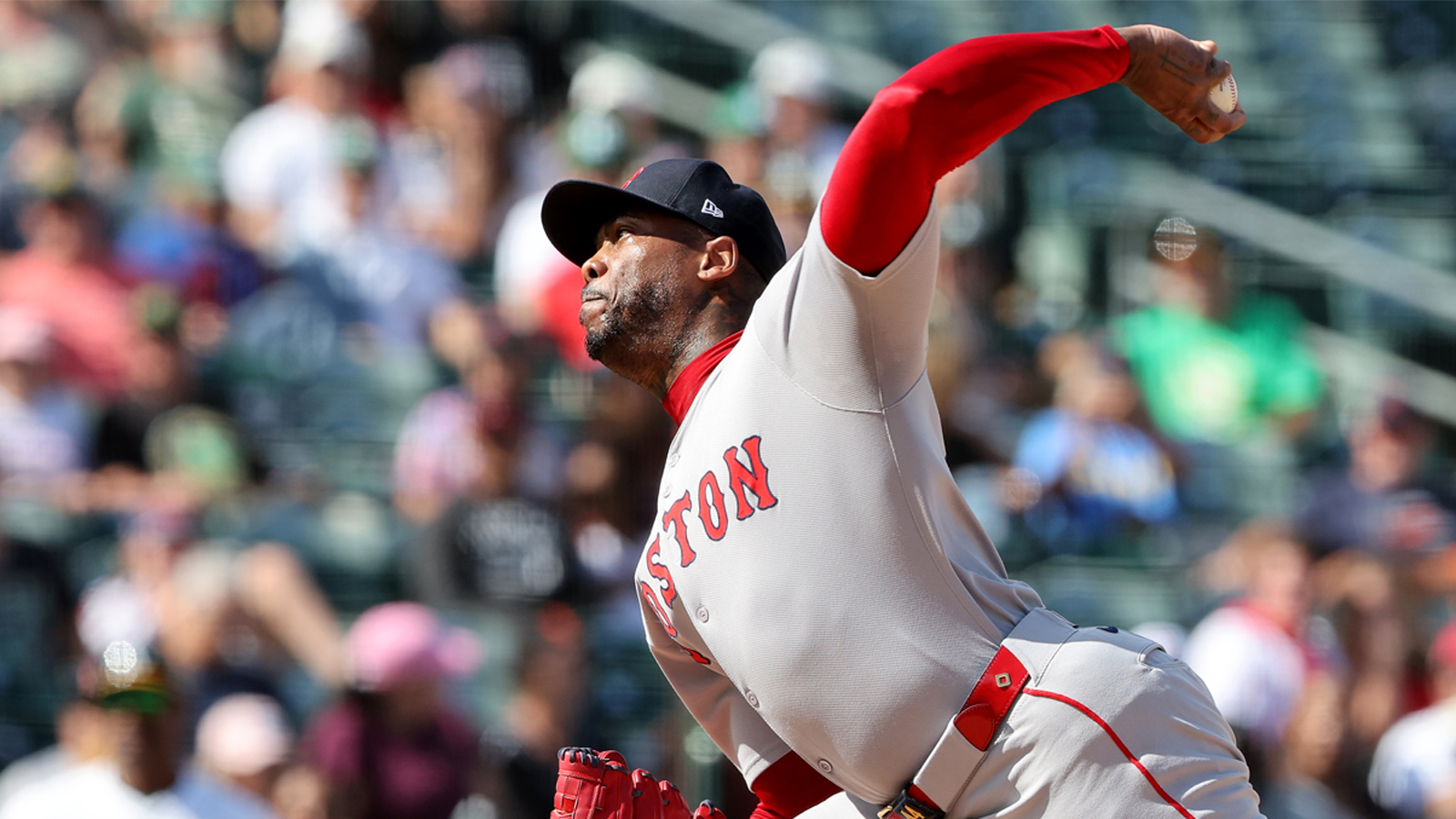
That cycle of criticism took its toll. Behind his stoic game-day demeanor, Chapman reportedly felt increasingly alienated. The pressure of pitching in New York, combined with a fanbase that expected perfection, made his time there emotionally draining. By the time his contract expired, it was clear that both sides were ready to move on.
What no one could have predicted, however, was just how incredible Chapman’s resurgence would be in Boston. In a twist of poetic irony, he found his second wind wearing the colors of New York’s fiercest rival. Pitching for the Red Sox, he rediscovered the dominance that once made him the most feared closer in baseball.
Through 67 appearances, Chapman has put up staggering numbers — a microscopic 1.17 ERA, 85 strikeouts, a WHIP of just 0.701, and 32 saves. Not only has he been consistent, but he’s also been nearly untouchable in high-leverage situations. His fastball still hums at triple digits, but what’s made him even more dangerous is his refined command and improved secondary pitches. Under Boston’s coaching staff, Chapman seems to have found a rhythm and confidence that had been missing for years.
For the Red Sox, this signing was a masterstroke. When they brought him in, it wasn’t without risk. Chapman’s past included some controversies and questions about his durability. But Boston’s front office saw an opportunity — a veteran reliever with championship experience and something to prove. They gave him a chance to rebuild his image, and he rewarded them by becoming the anchor of their bullpen.

The results have been nothing short of spectacular. Boston’s bullpen, which had been a weakness in recent seasons, suddenly became one of its greatest strengths. Chapman’s dominance in the ninth inning allowed manager Alex Cora to manage the rest of his relievers more flexibly, often saving key arms for tough middle-inning matchups. The ripple effect was felt throughout the entire pitching staff.
As Chapman continued to dominate, the Red Sox fanbase embraced him wholeheartedly. His fiery personality and emotional celebrations on the mound fit perfectly with the team’s gritty, passionate identity. Fenway Park began roaring again every time the bullpen doors swung open and Chapman emerged to the sound of Metallica’s “Enter Sandman” — a fittingly symbolic song choice that subtly echoed Yankee legend Mariano Rivera, but with a rebellious Boston twist.
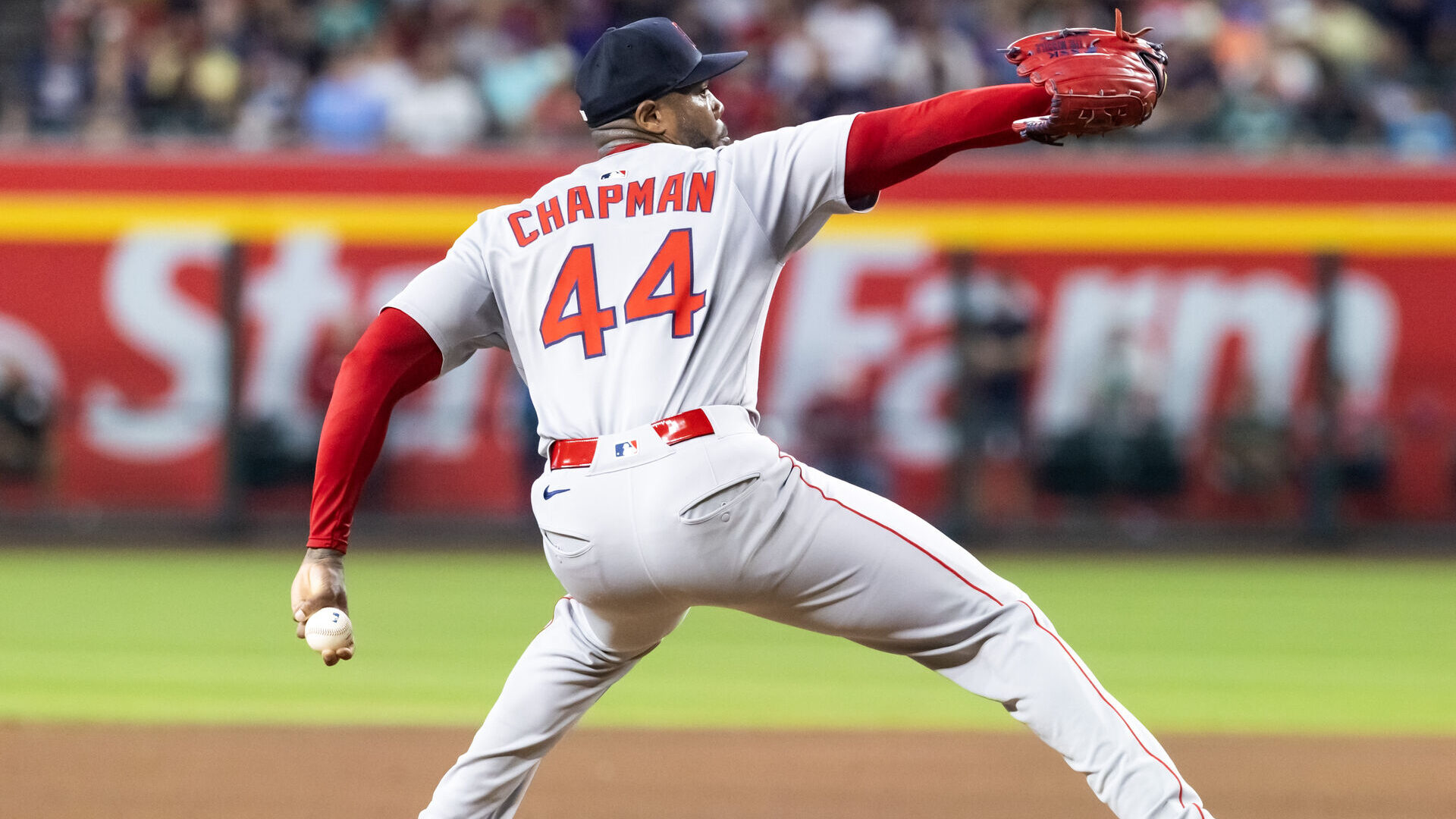
And then came the contract extension. Recognizing his value both on and off the field, the Red Sox quickly locked Chapman up for another year, signing him to a one-year, $13 million deal with a vesting option for 2027 worth an additional $13 million. The move signaled that Boston sees Chapman not just as a short-term boost, but as a key piece of their future bullpen plans.
For Chapman, the extension is more than just financial security — it’s vindication. After years of feeling underappreciated in New York, he’s found a home in Boston where his contributions are celebrated rather than scrutinized. Every save he records, every strikeout he notches, feels like a statement to those who once doubted him.
What makes the story even more compelling is the way it underscores the unpredictable nature of sports rivalries. It’s not uncommon for players to suit up for both the Yankees and Red Sox — names like Johnny Damon, Roger Clemens, and Jacoby Ellsbury have crossed that line before — but few have done so as defiantly as Chapman. His open disdain for his former team only fuels the rivalry further, giving every Red Sox-Yankees matchup an added layer of intrigue.
From Boston’s perspective, the optics couldn’t be better. Watching one of New York’s former stars thrive in a Red Sox uniform is a form of poetic justice for fans who have endured years of taunts from Yankee supporters. It’s a tangible reminder that even the most storied franchise can make mistakes — and that sometimes, redemption wears red and navy instead of pinstripes.
Chapman’s transformation in Boston isn’t just about statistics; it’s about mindset. He’s pitching with joy again. He’s confident, motivated, and seemingly free from the emotional baggage that weighed him down in New York. In interviews, he’s spoken about how much he enjoys the culture within the Red Sox clubhouse — a close-knit group that rallies around each other and embraces individuality.
“Here, it feels like family,” Chapman said in a recent postgame interview. “Everyone has your back, no matter what. That makes a big difference.”
That sense of belonging has translated into results on the field. His relationship with catcher Connor Wong has been particularly instrumental in his success, with the two developing excellent communication and trust. The Red Sox coaching staff has also been proactive in managing his workload, ensuring he remains fresh and effective deep into the season.
If Chapman continues pitching at this level, he could very well enter the conversation for the American League’s Reliever of the Year Award — an honor that would cement his comeback as one of the best stories in baseball this year. For Boston, his dominance could be the difference between simply contending and making a legitimate push for another World Series title.
For Yankees fans, meanwhile, his resurgence in Boston stings. It’s difficult to watch a former player thrive — especially one who left on less-than-ideal terms — with the team’s biggest rival. But that’s the beauty of the game: redemption often comes where it’s least expected.
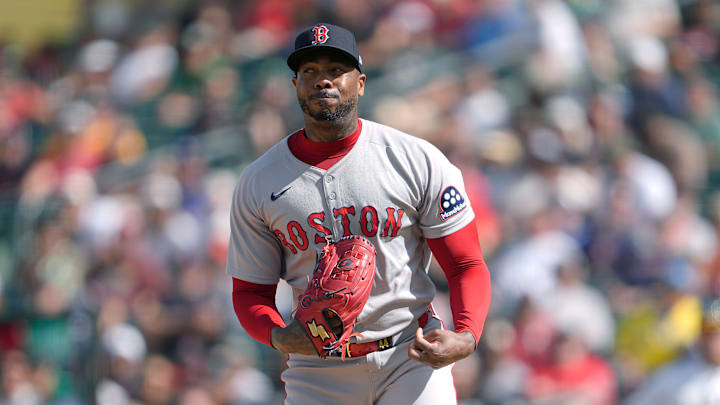
The rivalry between the Red Sox and Yankees has produced countless memorable storylines over the decades — from Bucky Dent’s home run to the 2004 ALCS comeback — and Chapman’s turnaround adds yet another layer to that history. Every time he closes out a win against New York, the symbolism is impossible to miss. The once-feared Yankee closer now slamming the door shut against his old team? It’s the kind of twist only baseball could write.
As the Red Sox look ahead to the next few seasons, Chapman’s role remains vital. His veteran leadership and postseason experience make him an invaluable asset to a young team hungry to return to October glory. If his current trajectory continues, Boston’s front office may even explore extending him beyond 2027 — ensuring that he remains a fixture in the bullpen for years to come.
Ultimately, Aroldis Chapman’s story with the Red Sox is about more than baseball. It’s about redemption, respect, and the power of second chances. It’s a reminder that even after years of criticism and doubt, a player can reinvent himself in the right environment.
For now, Chapman seems perfectly content where he is — dominating for Boston, thrilling fans at Fenway, and, perhaps most satisfyingly, sticking it to the team that once took him for granted. As long as he continues to deliver for the Red Sox, both he and the fans will enjoy every moment of this improbable comeback — one strikeout, one save, and one Yankees heartbreak at a time.
